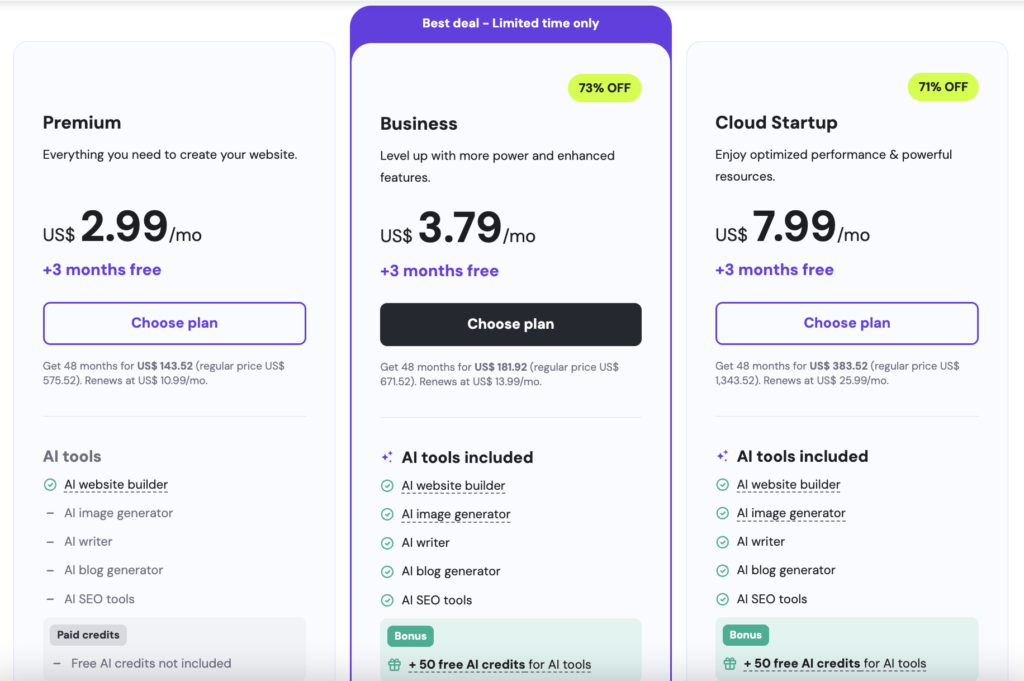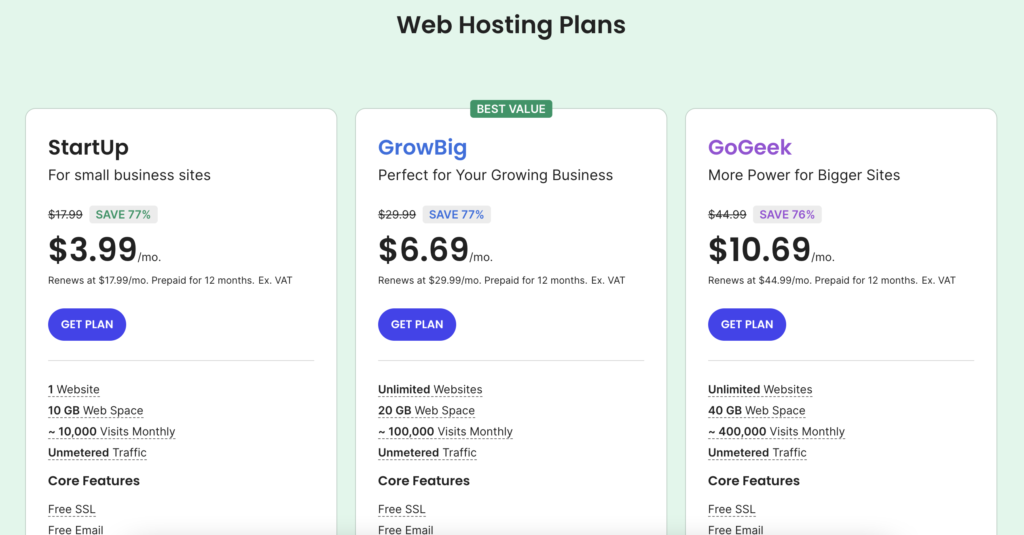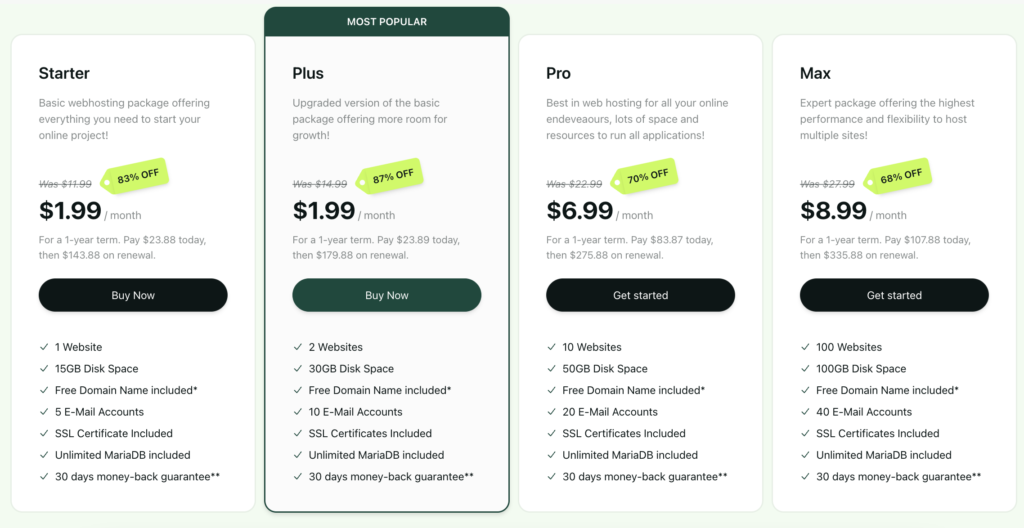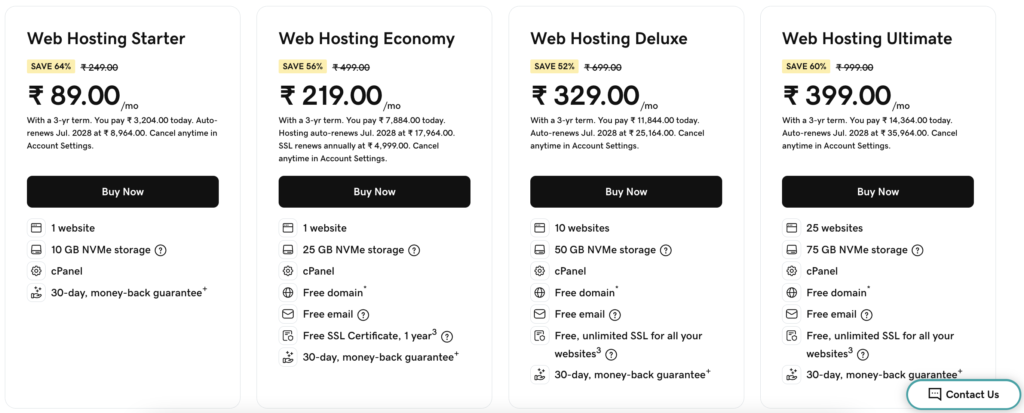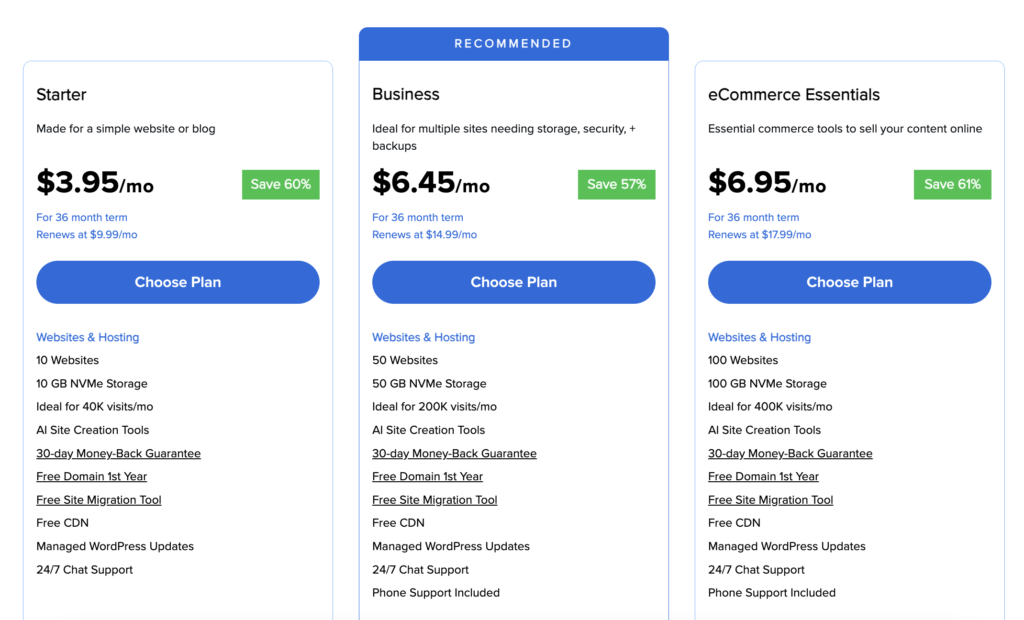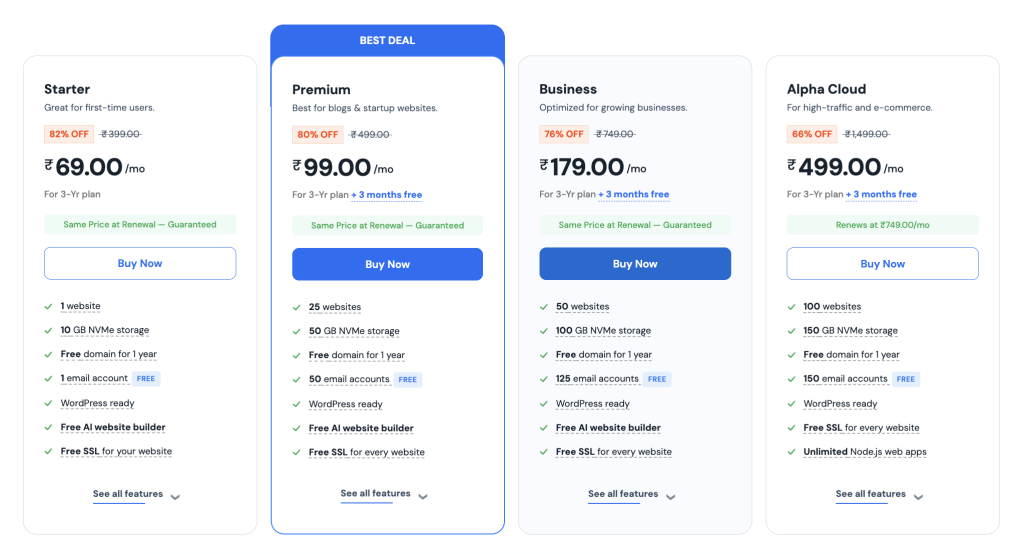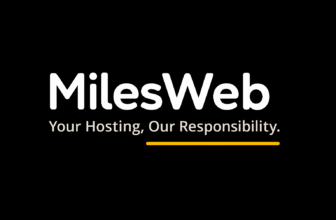Identifying the right website hosting service is the first step to building a fast, secure, and reliable website. With so many options out there, it can be tough to know which one fits your requirements. In this list, we’ve rounded up the best website hosting tools — each offering unique features, pricing plans, and performance perks to help you make the right choice.

(2,356 User Ratings)
Hostinger offers fast and reliable hosting at affordable rates. Its USP lies in a user-friendly control panel and excellent performance for the price. With features like free SSL, daily backups, and a 99.9% uptime guarantee, it’s great for small businesses and personal websites.
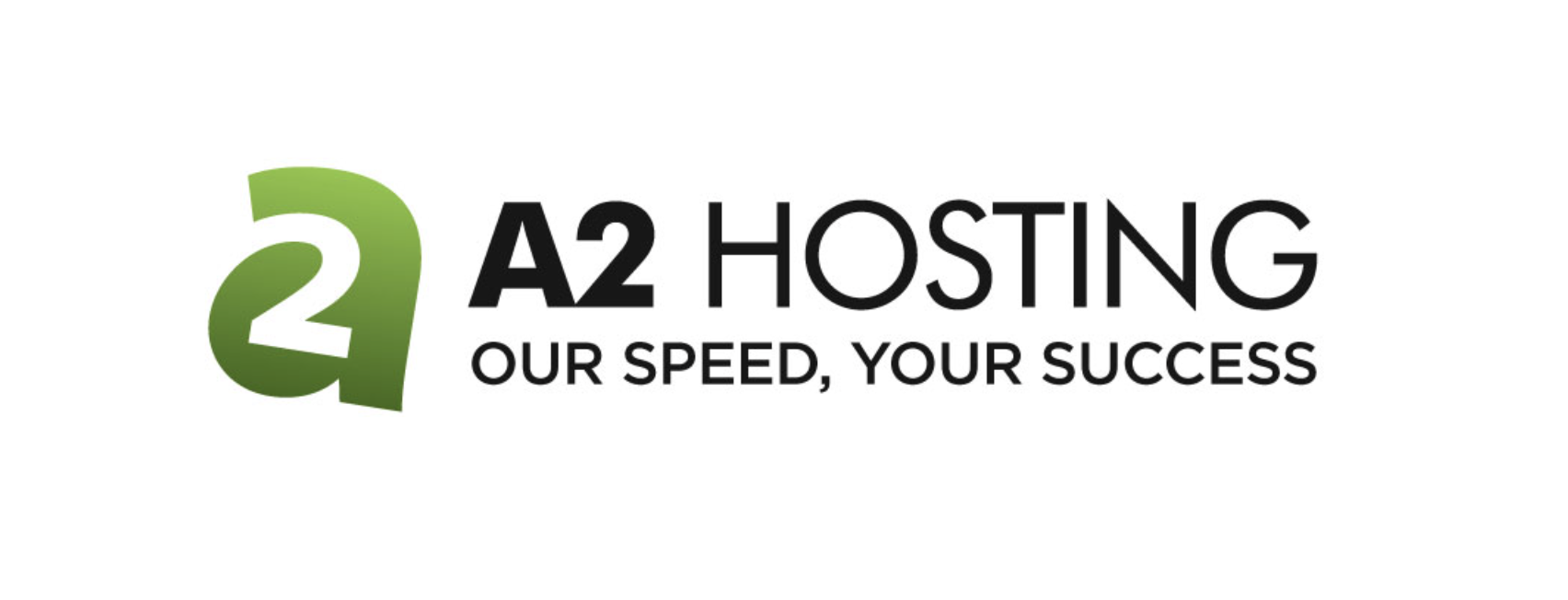
(2,356 User Ratings)
A2 Hosting is built for those businesses looking for high-performance hosting. Its standout feature is the Turbo Servers, which promise up to 20x faster page loads. With developer-friendly tools and flexible plans, it’s ideal for running resource-heavy websites.
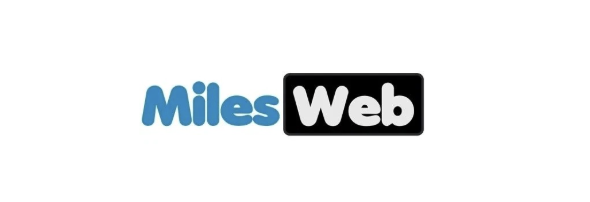
(2,356 User Ratings)
One of the strongest hosting options in India, especially for users who want fast NVMe storage, multiple websites, AI builder tools, and reliable Indian data centers at extremely affordable prices. Its same-price-at-renewal guarantee adds transparency rarely seen in the hosting industry.

(2,356 User Ratings)
SiteGround: Known for its great customer service and robust security features, it offers managed WordPress hosting, daily backups, and a custom caching system. A great choice for users who prioritize performance and uptime without getting too technical.

(2,356 User Ratings)
GoDaddy: With easy domain management, website builder integration, and 24/7 support, it simplifies the hosting process. While it’s not the fastest, it’s a convenient choice for users who want everything (domain, hosting, email) in one place.
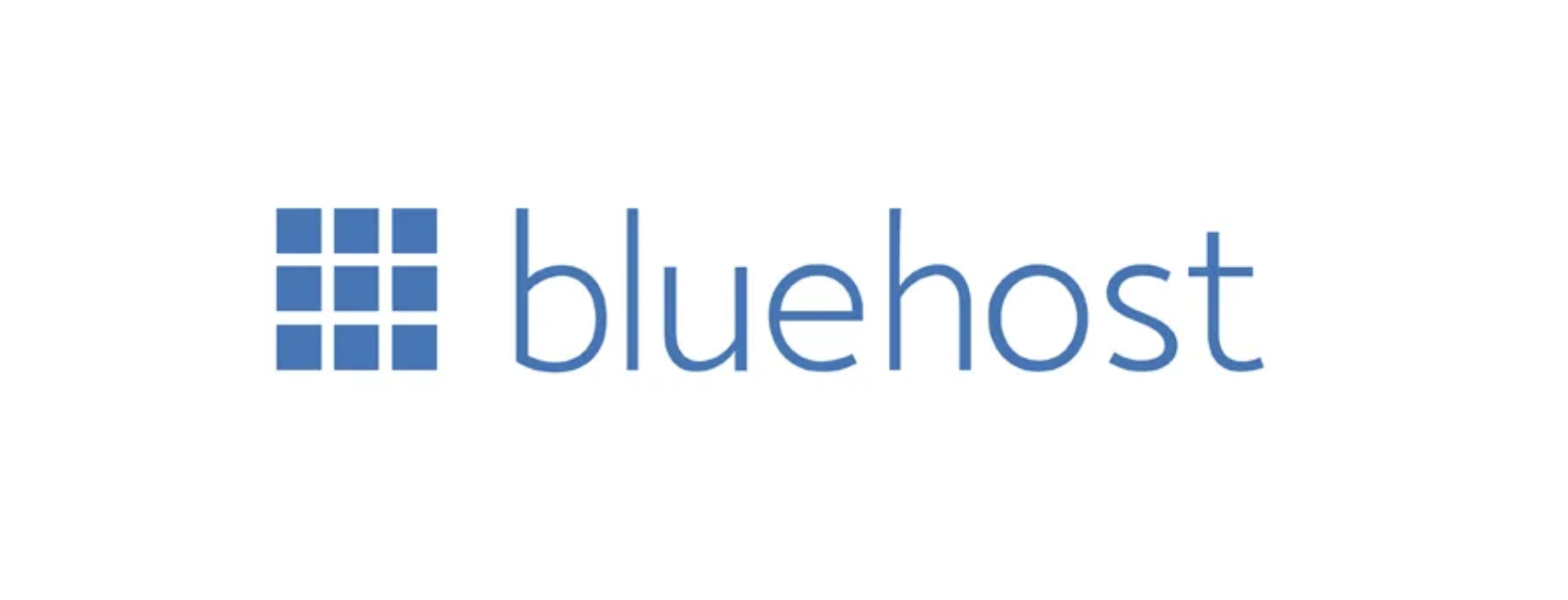
(2,356 User Ratings)
Bluehost: Recommended by WordPress itself, it offers one-click installations, free CDN, and solid uptime. Its intuitive dashboard and scalable plans make it easy to start and grow a website, even for first-time users.
Hostinger

Hostinger is known for delivering high-speed performance at budget-friendly prices. It’s especially appealing to beginners and small business owners thanks to its simplified dashboard, one-click installations, and responsive customer support. Hostinger’s standout feature is its balance between affordability and reliable infrastructure, including data centers across the globe and LiteSpeed-powered servers for faster load times. Whether you’re launching a personal blog or an online store, Hostinger offers shared, cloud, and VPS hosting plans that are scalable as your site grows. It also includes a free domain, SSL, and website builder in most plans.
Key features of Hostinger
LiteSpeed Web Server for faster performance
Global data centers for lower latency
hPanel (custom control panel)
Free SSL, email, and domain with most plans
99.9% uptime guarantee
One-click app installer for WordPress and others
Performance Breakdown: Pros and Cons
- Very affordable pricing plans
- Fast performance with LiteSpeed servers
- Beginner-friendly hPanel interface
- Global data centers for better reach
- Free SSL, email, and domain (with some plans)
- No phone support available
- Limited features on the basic plan
- Daily backups not included in all plans
- Fewer advanced developer tools than premium hosts
Pricing Plans
SiteGround
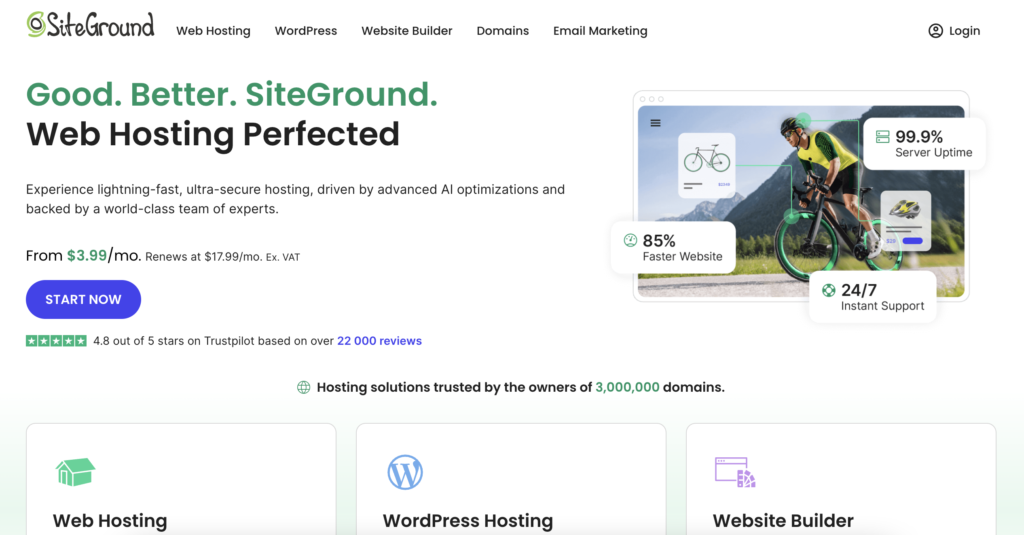
SiteGround is a premium web hosting provider known for its excellent customer support and performance-optimized servers. With features like free daily backups, built-in security tools, and advanced developer options, SiteGround offers a smooth and secure experience. It uses Google Cloud infrastructure and ensures fast page loads and top-tier uptime. Though priced higher than budget hosts, its value lies in robust support and reliable performance.
Key features of SiteGround
- Cloud-backed infrastructure
- SiteGround Optimizer for faster WordPress sites
- Free daily backups and automatic updates
- 24/7 support with high satisfaction ratings
- Built-in security tools and anti-bot AI
- Developer-friendly tools (Git, WP-CLI, staging)
Performance Breakdown: Pros and Cons
- Excellent 24/7 customer support
- Google Cloud infrastructure ensures high uptime
- Daily automated backups included
- Fast load speeds with built-in caching (SG Optimizer)
- Strong security tools and anti-bot protection
- Higher pricing, especially on renewals
- Storage space is limited across plans
- No free domain with hosting plans
- Resource limits may affect high-traffic sites
Pricing Plans
A2 Hosting
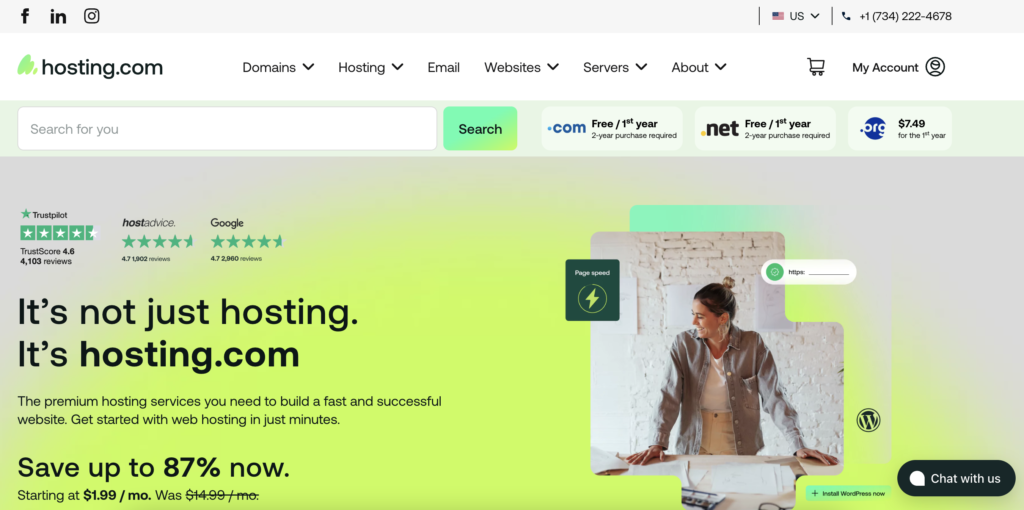
A2 Hosting (now Hosting.com) stands out for its blazing-fast Turbo Servers, offering up to 20x faster speeds compared to standard hosting. Designed for developers and performance-seekers, this web hosting service provides shared, VPS, dedicated, and reseller hosting options. It supports a wide range of developer tools and configurations, making it great for tech-savvy users. With a focus on speed, uptime, and customization, A2 Hosting is perfect for dynamic websites that need consistent performance under traffic spikes.
Key features of A2 Hosting
- Turbo Servers for up to 20x faster page loads
- Free site migration and automatic backups
- Developer-friendly (PHP versions, SSH, Git access)
- Anytime money-back guarantee
- Perpetual Security initiative with free HackScan
- SSD storage on all plans
Performance Breakdown: Pros and Cons
- Turbo Servers offer up to 20x faster speeds
- Free site migrations included
- Developer-friendly tools (SSH, Git, multiple PHP versions)
- SSD storage for all plans
- Generous anytime money-back guarantee
- Turbo plans are significantly pricier
- Interface can be overwhelming for beginners
- Backups not included in the cheapest plan
Pricing Plans
GoDaddy

GoDaddy is one of the most recognized names in domain registration and hosting, offering a wide range of web services under one roof. It’s designed for convenience, allowing users to purchase a domain, hosting, email, and website builder under one roof. While its hosting speeds are average compared to some newer competitors, it shines in ease of setup and global support. It’s flexible hosting plans cater to both beginners and small businesses looking for an all-in-one provider.
Key features of GoDaddy
- One-click WordPress and CMS installations
- Free domain with annual plans
- Integrated website builder
- 24/7 customer support and phone support
- Scalable resources for growing sites
- Built-in email hosting and marketing tools
Performance Breakdown: Pros and Cons
- All-in-one solution (domain, hosting, email, website builder)
- 24/7 customer and phone support
- Easy setup and onboarding for new users
- Wide range of hosting plans and add-ons
- Free domain with annual plans
- Slower performance compared to other hosts
- Upselling during checkout can be aggressive
- Basic plan lacks free SSL
- Renewal prices are steep
Pricing Plans
Bluehost
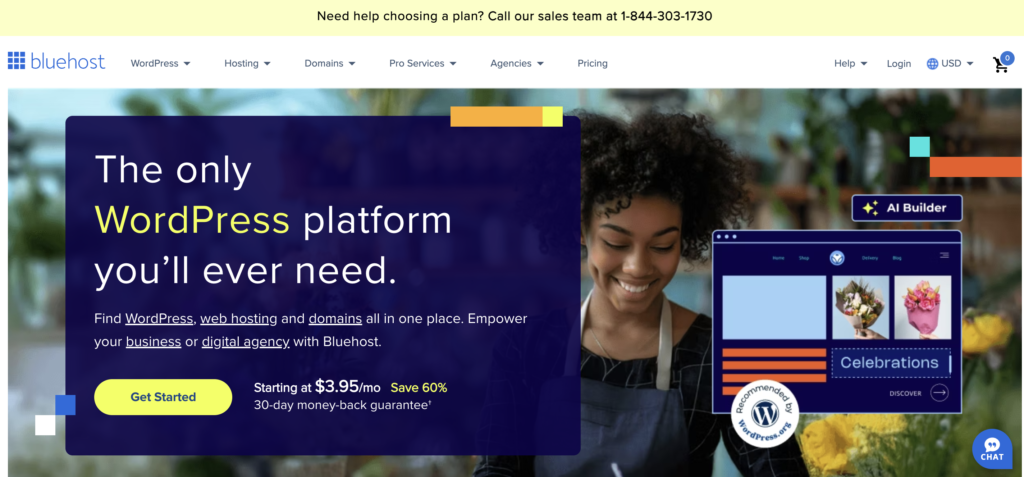
Bluehost is a well-known hosting provider recommended by WordPress.org, making it a favorite among bloggers and WordPress users. Its hosting plans come with one-click WordPress installs, automatic updates, free CDN, and a beginner-friendly control panel. It offers shared, VPS, dedicated, and WooCommerce hosting, allowing businesses to scale as they grow. With a strong reputation and reliable uptime, it’s a dependable option for new and experienced website owners alike.
Key features of BlueHost
- Free CDN and SSL on all plans
- One-click WordPress install and automatic updates
- Intuitive control panel and user-friendly dashboard
- 24/7 support via chat and phone
- Scalable hosting options (shared to dedicated)
Performance Breakdown: Pros and Cons
- Officially recommended by WordPress.org
- Free SSL, CDN, and domain with most plans
- Intuitive control panel with one-click installs
- 24/7 support via chat and phone
- Scalable hosting options from shared to dedicated
- High renewal rates
- Site speed can lag under heavy traffic
- Limited data centers (mostly US-based)
- Basic plan lacks some advanced tools (like staging)
Pricing Plans
MilesWeb

MilesWeb is a popular Indian web hosting provider known for its competitive pricing, India-based data centers, and wide range of hosting solutions. It’s particularly appealing to small businesses, bloggers, and developers who want reliable local performance with responsive support. MilesWeb focuses on delivering stable uptime, SSD-powered infrastructure, and beginner-friendly tools while also offering advanced options like VPS and cloud hosting. Whether you’re starting a blog, hosting a business website, or running a growing ecommerce store, MilesWeb provides scalable shared, WordPress, cloud, and VPS hosting plans designed for Indian and global audiences. Most plans also include free SSL, email hosting, and easy website management tools.
Key features of MilesWeb
- SSD-powered servers for faster website loading
- India-based and global data centers for low-latency performance
- cPanel control panel for easy website and server management
- Free SSL certificate and professional email accounts
- 99.95% uptime guarantee
- One-click installer for WordPress and popular applications
Performance Breakdown: Pros and Cons
- Affordable pricing
- Fast performance with SSD storage
- Reliable uptime for business-critical websites
- Familiar cPanel interface
- India-based servers for better local speed
- Entry-level plans have limited resources
- Advanced features locked behind higher-tier plans
- Backup options may vary by hosting type
- Interface design feels less modern than other hosts
Pricing Plans
How We Curated This List: To finalize this list of digital tools, we followed a structured and user-centric evaluation process. We began by shortlisting tools based on popularity, relevance across industries, and consistent user demand. Each tool was then assessed using hands-on testing and verified through authentic reviews from popular SAAS platforms like Capterra, G2, and Trustpilot. We evaluated them on key parameters such as ease of use, key features, pricing vs value, and customer support. Special attention was given to how well these tools meet the needs of different user segments including freelancers, small businesses, and growing teams. Only tools that demonstrated real-world value and a solid track record made the final cut. This list is periodically reviewed to ensure it reflects the latest updates and evolving user expectations, so readers always find relevant and high-performing options.


